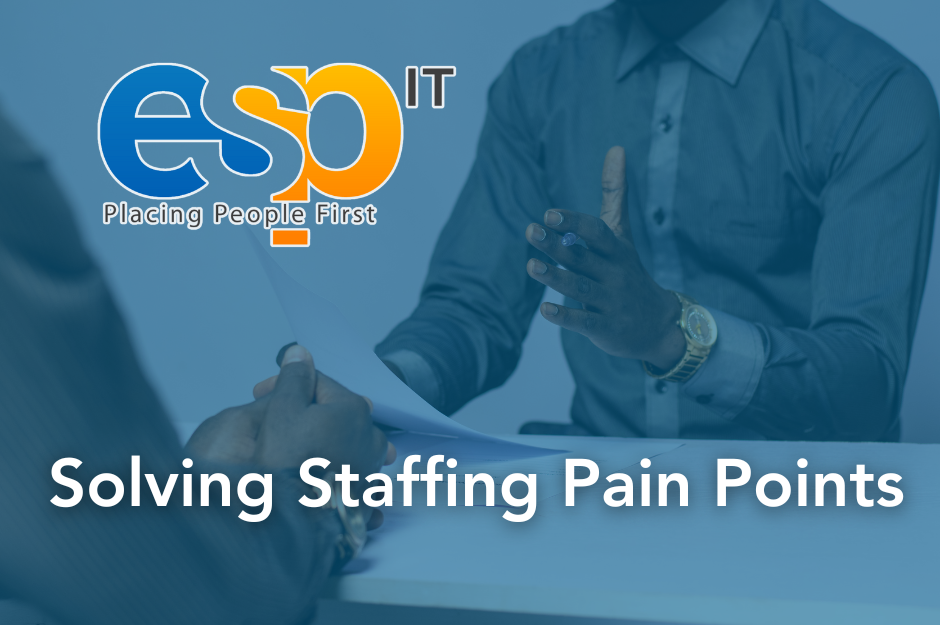While the nation may still be struggling with obesity, America is becoming an increasingly health-conscious society. From health apps to organic fast food, going on a “health kick” has swept the nation. Last January, with fresh New Year resolutions promising an increased devotion to healthy pursuits, the Twin Cities saw a sure spike in wellness trends. Despite our cold winters, Minnesota boasts the title of healthiest city in America thanks to ample park systems, exercise opportunities, and access to healthy food options. But being health-conscious in the New Year extends far beyond following the latest trend; taking care of your health will actually make you happier and more productive.
Jim Loehr and Tony Schwartz, in their Harvard Business Review article “The Making of a Corporate Athlete,” attribute the cultural shift toward wellness to a greater understanding of the ways health can impact our ability to perform a job most effectively. This is good news for IT professionals, bringing to light some of the health risks associated with working at computers all day, and encouraging behaviors to overcome such dangers. Thankfully, many are getting on board with wellness; surveys report that 62 percent of employees believe in practicing wellness throughout the workday. But while these statistics show that over half of the surveyed professionals are participating in wellness initiatives, there is still plenty of room for growth. Not everyone is in a position to participate in a wellness program at his or her workplace, but all workers can benefit from integrating holistic wellness into their professional careers.
Corporate Athletes Are More Productive
A Healthy Input Leads To Greater Output
You can’t maximize your productivity without pairing your energy expenditure with periods of recovery. Loehr and Schwartz point out that while this is a known concept for the professional athlete, “corporate athletes” rarely include room for recovery periods into their high-performance lifestyles. Though stress itself can work as an accelerant, chronic stress without recovery will lead to burnout. That’s why it’s important to take both physical and mental breaks every 90 to 120 minutes throughout your workday. Regular workouts during a workweek do more than increase your energy – they release endorphins that your mind needs to reenergize and stay positive during work. However, IT professionals cannot achieve a healthy lifestyle focusing on physical health alone. Holistic wellness approaches recognize that employees need to be focused on all areas of health in order to truly benefit – eating well and getting enough rest are essential to eliminating sluggishness and improving your overall health. In addition to increased motivation and energy, wellness may also lead to increased mental cognition. All of these positive effects can ultimately lead to career advancement by “training” you to handle higher-stress positions of authority and showing your superiors that you are ready for the challenge.
Professional Achievements Become Personal Rewards
Increasing your productivity at work is about much more than meeting deadlines. Greater productivity can lead to a healthier work-life balance by ensuring that work doesn’t follow you home. This is especially important for IT consultants who are able to work remotely. Increased productivity due to wellness can help such consultants set defined “working hours,” leaving designated time for relaxation or fun with loved ones. Likewise, establishing a regular workout routine, break schedule, and/or eating schedule can help you to create work-life boundaries during the day by making sure that breaks don’t become inundated with work. Achieving this state of wellness could greatly increase your happiness at work, which snowballs into increased happiness at home, and back around to work. Wellness can garner positive results in all areas of your life.
Corporate Athletes Achieve Their Goals
Keeping All “Wellness Muscles” Strong Is Key
Total wellness encourages individuals to focus on their mental, emotional, spiritual, physical, financial, and social health, recognizing that when even one area is weak, it can affect overall health. Loehr and Schwartz refer to the “performance pyramid,” which recognizes the importance of each “level,” and that failure to address any one level could lead to a compromised professional performance. And yes, there really are benefits to focusing on these goals during the workday, instead of only during personal time. In one experiment, 57 percent of people with high health risk reached low-risk status by incorporating an exercise routine into their work. Others have found that taking time to break mentally during the workday allowed them greater opportunity for reflection. This resulted in strengthened values, and was sometimes enough to encourage employees to quit smoking or otherwise discontinue habits or addictions that they had long been unable to overcome. For IT workers, this focus on total heath is especially important, as working at a desk can affect not only your physical health by causing back pain, eye strain, headaches, and carpal tunnel, but can also severely impact your mental health, and can even cause heart problems. These complications, however, are not something to fear; rather, by being mindful of total health, IT workers may never need to worry about such issues, and can experience greater life fulfillment.
Total Wellness Yields A Greater Quality Of Life
Practicing healthy habits during your day may mean that you choose healthier restaurants when grabbing lunch, or that you take a walk while having a longer conversation or meeting over the phone. As previously mentioned, increased productivity due to increased wellness can mean more time with loved ones. Investing more in these external relationships can lead you to feeling happier and more fulfilled, both at home and at work, which in turn may increase your chances of building relationships with coworkers that will lead to an enhanced employment experience. For IT consultants building these workplace connections is especially important, as networking and strong recommendations can lead to more IT gigs. Ultimately, when you are happy, you’re energized, have greater engagement, and are sick less often. These benefits can directly reflect on others in your life as well; research shows that the family members of healthy employees are also sick less often, because healthy habits carry over into the home.
Ultimately, your goal should be to reach the “Ideal Performance State” that Loehr and Schwartz say is the purpose for workplace wellness. When we recognize that work, like any other activity, requires proper training and development for success, it’s easier to understand why wellness should be a priority. Whether you are a remote consultant, or a wellness coordinator at a large office, you can benefit by practicing wellness throughout your day and encouraging others to do the same. Work-life balance should be more than a phrase; it should be the goal of every employer and professional. The efforts that you make could help you reap incredible rewards in the very near future.
For more ideas on how to integrate total wellness into your work day, check out ESP’s “Live Well” model below, with 3 healthy tips for accomplishing each of our 4 key areas of wellness.
ESP IN THE NEWS



